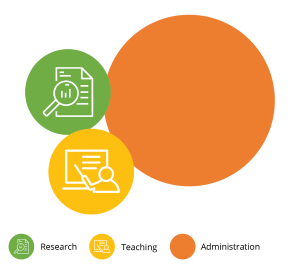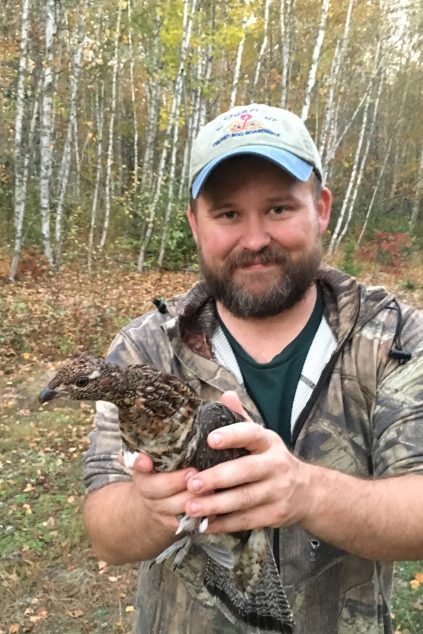Erik Blomberg
Expertise
Bats, Birds, Ecology, Environmental sciences, Fish, Fisheries, Forests, Gamebirds, Land and natural resource use, Wildlife
Blomberg is a wildlife ecologist who studies how wildlife populations respond to environmental change. His current research focuses on gamebirds (spruce grouse, ruffed grouse, American woodcock), bats, and American eels. Visit Blomberg’s biography to learn more.

Appointment details
Blomberg’s work is supported by:
- Department of Wildlife, Fisheries and Conservation Biology at the College of Natural Sciences, Forestry and Agriculture
- Maine Agricultural and Forest Experiment Station
Experiment Station contributions
My first Experiment Station Project focused on ecology and management of grouse in Maine. Ruffed grouse are an important and popular game bird, and spruce grouse are a protected species with regional declines. We partnered with the Maine Department of Inland Fisheries and Wildlife and the Cooperative Forestry Research Unit to assess state management strategies and effects of forest practices on both species.
My second Experiment Station project involves the migration ecology of American woodcock, a native Maine bird that migrates to the southeastern US each winter. We’ve turned this project into an international collaboration involving 14 states and 3 Canadian provinces, using GPS transmitters to track woodcock across their entire range. More information at woodcockmigration.org.
For both projects, I’ve also tackled additional questions related to management and conservation of Maine’s fish and wildlife, including American eels, wild turkeys, Canada lynx, bats, and more.
- Current project: Linking Migration with Population Process and Management Outcomes for American Woodcock. McIntire-Stennis Project Number ME042116.
Career highlight
I am most proud of the Eastern Woodcock Migration Research Cooperative, which has grown from my Experiment Station project into an international collaboration involving dozens of partners across the US and Canada. More information at woodcockmigration.org.

